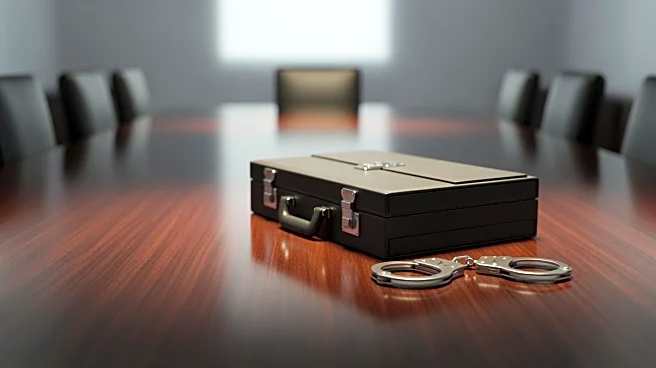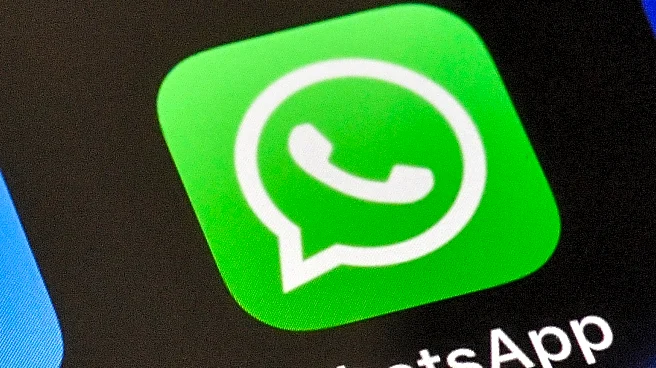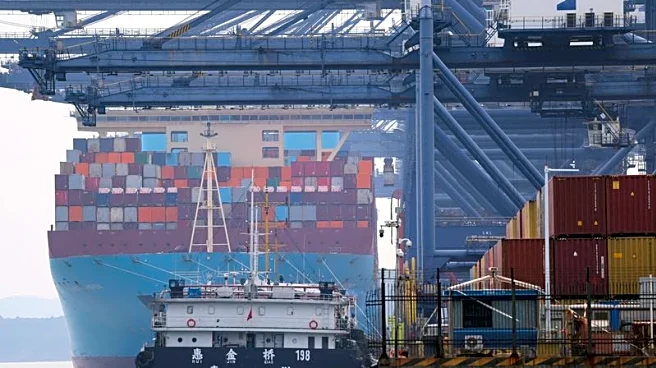What's Happening?
Philippine President Ferdinand Marcos Jr. has announced the detention of seven suspects involved in a major corruption scandal concerning flood control projects. The scandal has implicated several powerful members of Congress, with testimonies revealing
that former and current senators and House members received substantial kickbacks from construction companies that secured lucrative contracts. The Sandiganbayan, a special anti-corruption court, has indicted over a dozen suspects, including a former House member and government engineers. Marcos has vowed to pursue numerous criminal graft and corruption lawsuits by Christmas. The anomalies may have originated under Marcos's predecessor, Rodrigo Duterte, and projects from his tenure will also be investigated.
Why It's Important?
The corruption scandal highlights systemic issues within the Philippine government, particularly in infrastructure projects. The involvement of high-ranking officials underscores the challenge of addressing corruption in the country. The scandal has sparked public outrage, leading to protests and calls for accountability. The investigation and subsequent legal actions could lead to significant political shifts and reforms in the Philippines. The scandal also affects international perceptions of the country's governance and could impact foreign investment and aid.
What's Next?
President Marcos has promised to continue pursuing legal action against those involved in the scandal, with the aim of securing convictions by Christmas. The investigation may expand to include projects from the previous administration, potentially implicating more officials. Public demonstrations are planned, supported by influential groups such as the Roman Catholic Church. The government may face increased pressure to implement anti-corruption measures and improve transparency in public projects.
















